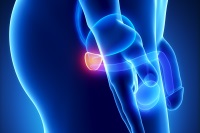
CLIPAREA.com/Dollar Photo Club
Before I mention the food, let me ask this question: Should a food group heavily recommended by schools and public health groups increase your risk of cancer?
Let’s look at some of the other foods that are recommended by nutritionists and public health organizations. Broccoli. Never in any study I have ever read has broccoli been shown to increase the risk of anything. Even when laden with pesticides, this superfood is inherently protective enough to overcome the chemicals.
Pomegranates? Never any bad press. Nuts (so long as they are coated in added oils)? Nope–all good news. Beans? Vegetables in general? Apples? No, no and none.
I feel very strongly that, if those of us with knowledge on nutrition are making recommendations, there really shouldn’t be any controversy behind it. And yet there is one food group that has been held on a pedestal for so long that practically the entire industrialized world believes it is essential for good health. So much so that when a patient comes in and the subject of bone health comes up, he or she is almost embarrassed to tell me that this food group is not normally on the menu.
Of course I’m talking about dairy products.
That wonderful health food that has managed to make it into every public health recommendation for the past 30 years. The food group whose industry advocates (this or that state Dairy Council) have managed to worm their way into public health groups so they can further the agenda of dairy as a health food. The food group that is promoted almost daily in radio and TV commercials to an unsuspecting public who believes the marketing geared towards building stronger bones, teeth and muscles.
Just in case you’re one of those people out there who have been brainwashed by the industry into believing that milk from a lactating cow is good for your health and need a little more convincing, feel free to check out my eBook on the Misconception of Dairy as a Health Food by clicking here.
For the rest of you, I’d just like to add this particular study to the list of evidence that dairy is really not a food for non-nursing non-bovine humans to partake in. This study was a large review of 32 different studies looking specifically at the links between dairy intake and prostate cancer. Here’s what they found:
- Overall dairy intake increased the risk of prostate cancer by 7% for each 400 grams per day (just under 2 glasses)
- Milk intake upped prostate cancer risk by 3% for every 200 grams per day (less than a glass)
- Low-fat milk increased the risk more than full milk at 6% for each 200 grams per day.
- Cheese increased the risk by 9% for every 50 grams per day (just under 2 slices).
While these numbers are not terribly high, it should absolutely raise the question about whether or not we should be recommending that our children have 3 servings a day or a food group that is very, very solidly associated with prostate cancer risk (among other concerns). Should any public health recommendation when it comes to diet and exercise, have a downside, when there are so many other viable alternatives that help build strong bones, teeth and muscles (none of which, BTW, have been shown to be benefited by dairy intake)?
Even IF dairy were not consistently shown to increase prostate cancer risk, can we really justify feeding our children calories as a liquid? Do the math–even 2% milk (which, you’ll note from this study, actually increased the risk MORE than low fat milk), at about 100 calories per glass, 3 glasses per day is an extra 109,500 calories PER YEAR. And we wonder why we have a childhood obesity epidemic.
